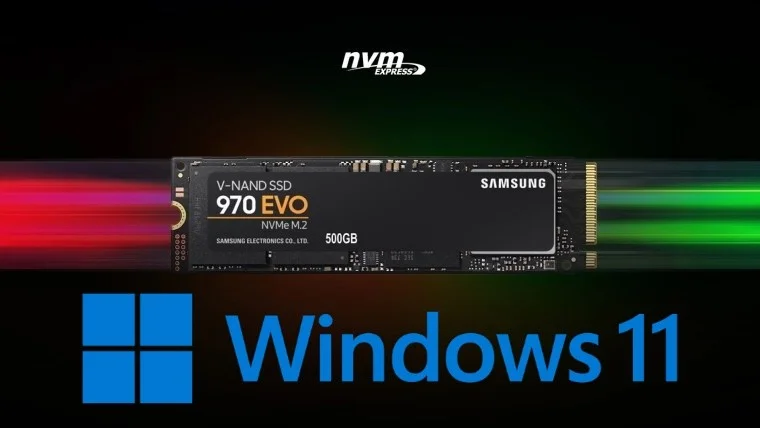Microsoft will make bootable SSDs for Windows 11
- June 9, 2022
- 0
When Windows 11 was first announced, many people were shocked by the operating system’s stringent system requirements. CPUs from AMD and Intel that are only a few generations
When Windows 11 was first announced, many people were shocked by the operating system’s stringent system requirements. CPUs from AMD and Intel that are only a few generations

When Windows 11 was first announced, many people were shocked by the operating system’s stringent system requirements. CPUs from AMD and Intel that are only a few generations old were considered unsupported.
However, when it comes to storage, the Redmond giant only mentioned 64GB of space, but did not specify a specific type or interface for storage; that means spinning hard drives (HDDs) or even something potentially slower can be used to boot. discs. And even with the previous version of Windows 11 22H2, the company kept the same system requirements, but unsurprisingly, the update was also rolled out to users with unsupported PCs due to a bug.
But that could change next year with the 23H2 Sun Valley 3 (SV3) upgrade, or possibly later with Windows 11 24H2 (SV4), as Microsoft may make the fast NAND-based solid state drive (SSD) mandatory.
John Chen, CEO of TRENDFOCUS storage research, said in a recent interview with Tom’s Hardware that Microsoft is pushing OEMs and vendors to mandate SSDs as bootable drives. Chen added that initially hard drives were planned to be abandoned this year, but this has been delayed to 2023-2024. He explained that the transition is difficult as solid-state drives are still slightly more expensive than hard drives, and so balancing the provided capacity with the cost of a solid-state drive as a boot disk is still financially unprofitable for typical low-budget PCs.
Here is his full statement:
Based on our conversations with OEMs, the initial date of engagement was to be this year, but has been delayed to next year (second half I think, but the exact date is unclear). OEMs are trying to agree on a certain level of exclusion (either moving to emerging markets in 2024 or moving to desktops in 2024), but the situation is still changing.
While the general hardware requirements for Windows 11 still don’t guarantee SSD, Microsoft has already made it mandatory for some features, such as running Android apps that oddly don’t support Ryzen 2000 (Zen+) processors either. The architecture is supported for Windows 11. Source
Source: Port Altele
John Wilkes is a seasoned journalist and author at Div Bracket. He specializes in covering trending news across a wide range of topics, from politics to entertainment and everything in between.